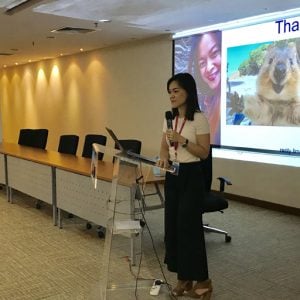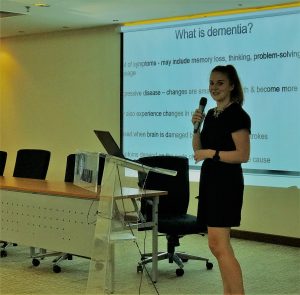[fusion_builder_container hundred_percent=”no” equal_height_columns=”no” menu_anchor=”” hide_on_mobile=”small-visibility,medium-visibility,large-visibility” class=”” id=”” background_color=”” background_image=”” background_position=”center center” background_repeat=”no-repeat” fade=”no” background_parallax=”none” parallax_speed=”0.3″ video_mp4=”” video_webm=”” video_ogv=”” video_url=”” video_aspect_ratio=”16:9″ video_loop=”yes” video_mute=”yes” overlay_color=”” overlay_opacity=”0.5″ video_preview_image=”” border_size=”” border_color=”” border_style=”solid” padding_top=”” padding_bottom=”” padding_left=”” padding_right=””][fusion_builder_row][fusion_builder_column type=”1_1″ layout=”1_1″ background_position=”left top” background_color=”” border_size=”” border_color=”” border_style=”solid” border_position=”all” spacing=”yes” background_image=”” background_repeat=”no-repeat” padding=”” margin_top=”0px” margin_bottom=”0px” class=”” id=”” animation_type=”” animation_speed=”0.3″ animation_direction=”left” hide_on_mobile=”small-visibility,medium-visibility,large-visibility” center_content=”no” last=”no” min_height=”” hover_type=”none” link=””][fusion_text] ![]() 25 April 2019 – The Institute for Research, Development, and Innovation (IRDI) of International Medical University (IMU) had successfully organised the third Translational Research Seminar at the University’s Bukit Jalil campus. Organised by IRDI’s Centre for Cancer and Stem Cells Research (CSCR) in collaboration with IMU’s School of Pharmacy, the seminar consisted of two talks which were delivered by Dr Renly Lim and Dr Alys Griffiths respectively. The seminar started with Dr Lim deliberating on “Malaysia versus Australia: Who Wins in Medication Safety?”. [/fusion_text][fusion_table]
25 April 2019 – The Institute for Research, Development, and Innovation (IRDI) of International Medical University (IMU) had successfully organised the third Translational Research Seminar at the University’s Bukit Jalil campus. Organised by IRDI’s Centre for Cancer and Stem Cells Research (CSCR) in collaboration with IMU’s School of Pharmacy, the seminar consisted of two talks which were delivered by Dr Renly Lim and Dr Alys Griffiths respectively. The seminar started with Dr Lim deliberating on “Malaysia versus Australia: Who Wins in Medication Safety?”. [/fusion_text][fusion_table]
| About Dr Renly Lim |
|---|
| Dr Lim is a registered pharmacist in Malaysia and currently a research fellow at the University of South Australia, Adelaide. She is also the clinical research leader of the ReMinDAR trial, a randomised controlled trial evaluating a novel pharmacist-led service to prevent adverse events in aged care facilities across Australia. More about Dr Renly Lim at Branching Out: Pharmacist Researcher Dr Renly Lim on Exploring Academia. |
[/fusion_table][fusion_text]  Medications is the most common intervention healthcare professionals make in delivering healthcare. This has resulted in the fact that problems with medicine use are common. Problems with medication can occur at any time during their use, including when the decision is made to use a medicine, during dispensing, and while using the medicine. The main types of harm include hospital admissions due to medicines and adverse events. In Australia, there are an estimated 230,000 medication-related hospital admissions occurring every year. In Malaysia, the figure is almost doubled with an estimation of 425,000 medication-related hospital admissions every year. In this presentation, Dr Lim talked about the current landscape of medication safety in both countries, how Australia-Malaysia researchers can collaborate, and revealed who the real winner was. Interestingly, Dr Lim remarked that the winner is ultimately the healthcare professionals as they play vital roles in improving health and minimising the harms due to medications use. Besides, one of the biggest challenge in this 21st century is to tackle patients with multiple diseases. Hence, healthcare professionals need to look into the effectiveness and safety of multiple treatments in multiple conditions as well as the development of relevant guidelines for multiple illnesses. Essentially, healthcare professionals should improve the communications among themselves and with the patients to reduce the chance of errors. This talk was followed by Dr Alys Griffiths’ talk on “Management of Behavioural Symptoms for People Living with Dementia – What Can Research Tell Us?” [/fusion_text][fusion_table]
Medications is the most common intervention healthcare professionals make in delivering healthcare. This has resulted in the fact that problems with medicine use are common. Problems with medication can occur at any time during their use, including when the decision is made to use a medicine, during dispensing, and while using the medicine. The main types of harm include hospital admissions due to medicines and adverse events. In Australia, there are an estimated 230,000 medication-related hospital admissions occurring every year. In Malaysia, the figure is almost doubled with an estimation of 425,000 medication-related hospital admissions every year. In this presentation, Dr Lim talked about the current landscape of medication safety in both countries, how Australia-Malaysia researchers can collaborate, and revealed who the real winner was. Interestingly, Dr Lim remarked that the winner is ultimately the healthcare professionals as they play vital roles in improving health and minimising the harms due to medications use. Besides, one of the biggest challenge in this 21st century is to tackle patients with multiple diseases. Hence, healthcare professionals need to look into the effectiveness and safety of multiple treatments in multiple conditions as well as the development of relevant guidelines for multiple illnesses. Essentially, healthcare professionals should improve the communications among themselves and with the patients to reduce the chance of errors. This talk was followed by Dr Alys Griffiths’ talk on “Management of Behavioural Symptoms for People Living with Dementia – What Can Research Tell Us?” [/fusion_text][fusion_table]
| About Dr Alys Griffiths |
|---|
| Dr Griffiths is a Research Fellow working in the Centre for Dementia Research at Leeds Beckett University. Her research focuses on supporting people with dementia to live well with the condition, with a particular interest in care homes research. |
[/fusion_table][fusion_text]  Dementia is an umbrella term used to describe a range of conditions causing changes and damage to the brain. Many people living with dementia experience behavioural symptoms, which their family members often find difficult to support. Medications are sometimes given to help target these, although psychosocial interventions are recommended where possible. In the talk, Dr Griffiths talked about the use, benefits, and challenges of medications and psychosocial interventions for targeting these symptoms. The take-home message from Dr Griffiths’ talk was there is no cure to dementia. However, various pharmacological and non-pharmacological interventions could help in alleviating the dementia symptoms. The Translational Research Seminar Series is made possible by sponsorship from leading biotechnology companies, international research institutions and institutions of higher education. The Seminar serves as a platform for knowledgebase sharing, technical and technological advancement and collaboration to fostering talent, excellence and creativity at the research frontiers. [/fusion_text][fusion_text] Related Articles [/fusion_text][fusion_table]
Dementia is an umbrella term used to describe a range of conditions causing changes and damage to the brain. Many people living with dementia experience behavioural symptoms, which their family members often find difficult to support. Medications are sometimes given to help target these, although psychosocial interventions are recommended where possible. In the talk, Dr Griffiths talked about the use, benefits, and challenges of medications and psychosocial interventions for targeting these symptoms. The take-home message from Dr Griffiths’ talk was there is no cure to dementia. However, various pharmacological and non-pharmacological interventions could help in alleviating the dementia symptoms. The Translational Research Seminar Series is made possible by sponsorship from leading biotechnology companies, international research institutions and institutions of higher education. The Seminar serves as a platform for knowledgebase sharing, technical and technological advancement and collaboration to fostering talent, excellence and creativity at the research frontiers. [/fusion_text][fusion_text] Related Articles [/fusion_text][fusion_table]
[/fusion_table][/fusion_builder_column][/fusion_builder_row][/fusion_builder_container]

